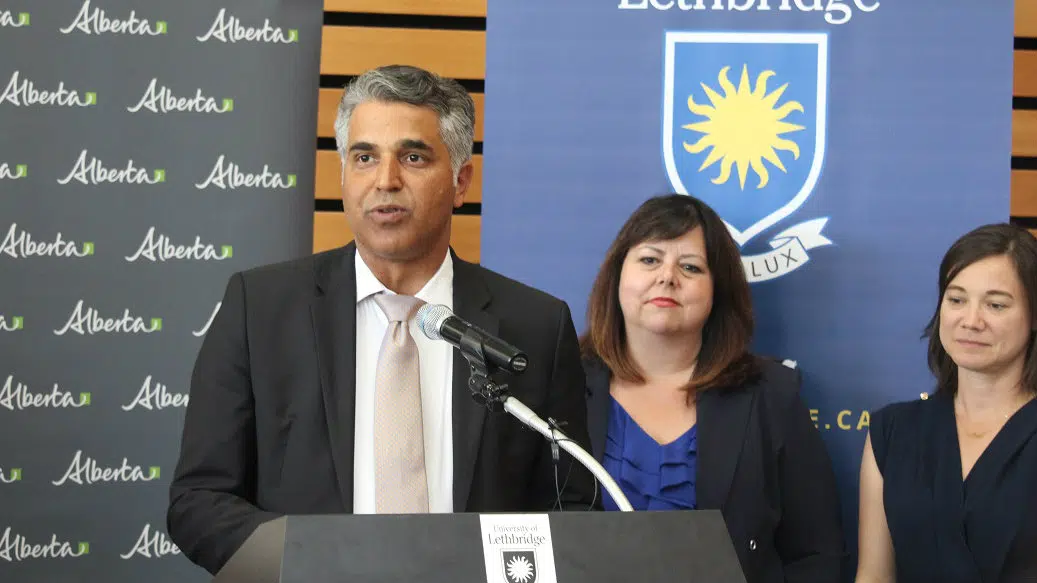
New funding to make post-secondary more inclusive for students with developmental disabilities
LETHBRIDGE – The University of Lethbridge is joining with 19 other post-secondary institutions in Alberta to offer more educational opportunities to students with developmental disabilities.
On Monday, July 16, Minister of Community and Social Services Irfan Sabir announced the province is providing more than $575,000 to help Inclusion Alberta support six students at the U of L and Portage College.
Sabir says the funding will provide additional opportunities for people with developmental disabilities to pursue post-secondary education.
“I think first and foremost it’s important for a government to have opportunities available to everyone in this province. Everyone belongs, and in particular, a person with developmental disabilities deserves a chance, an opportunity to be successful and live a meaningful life,” Sabir said.


